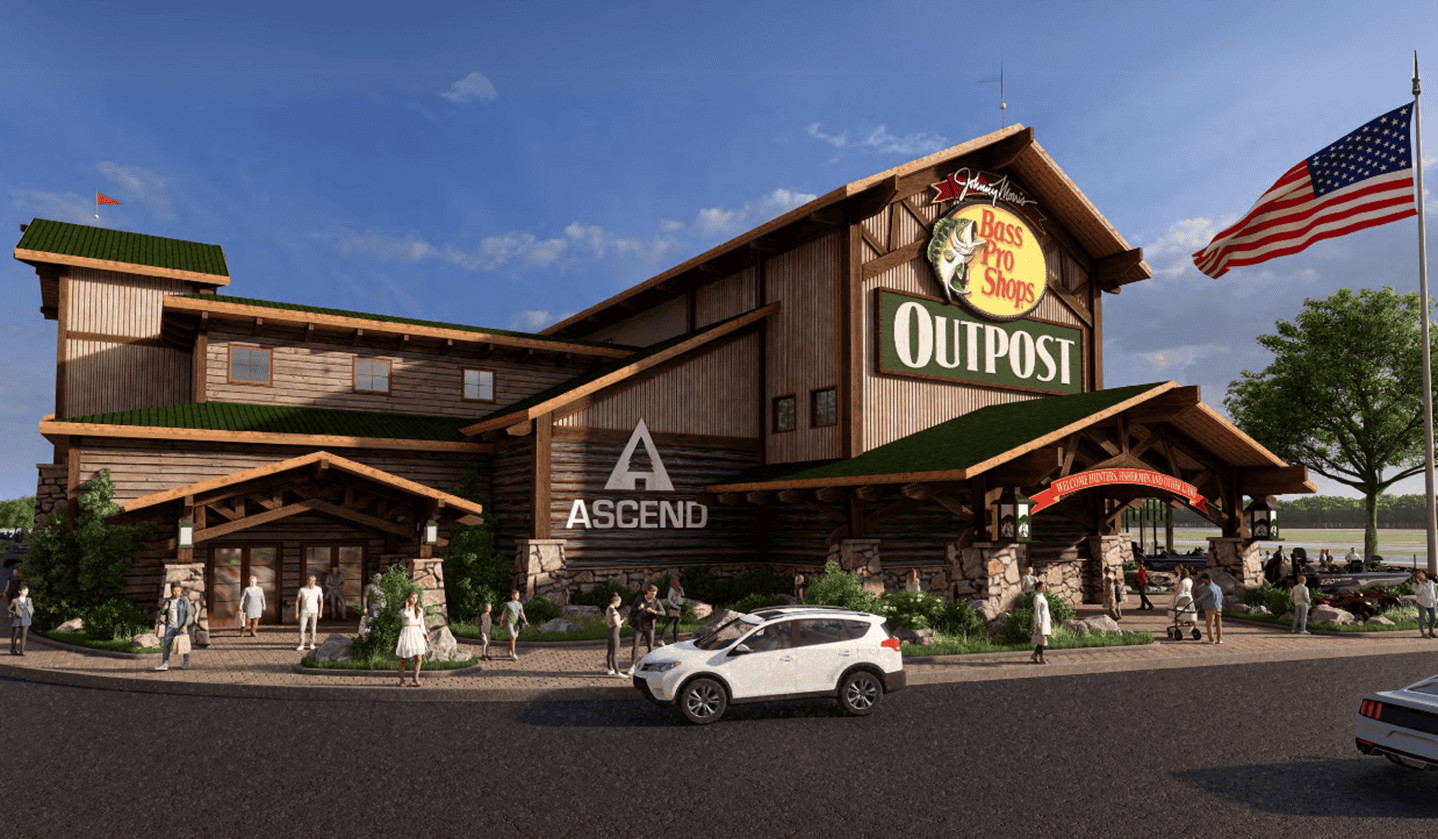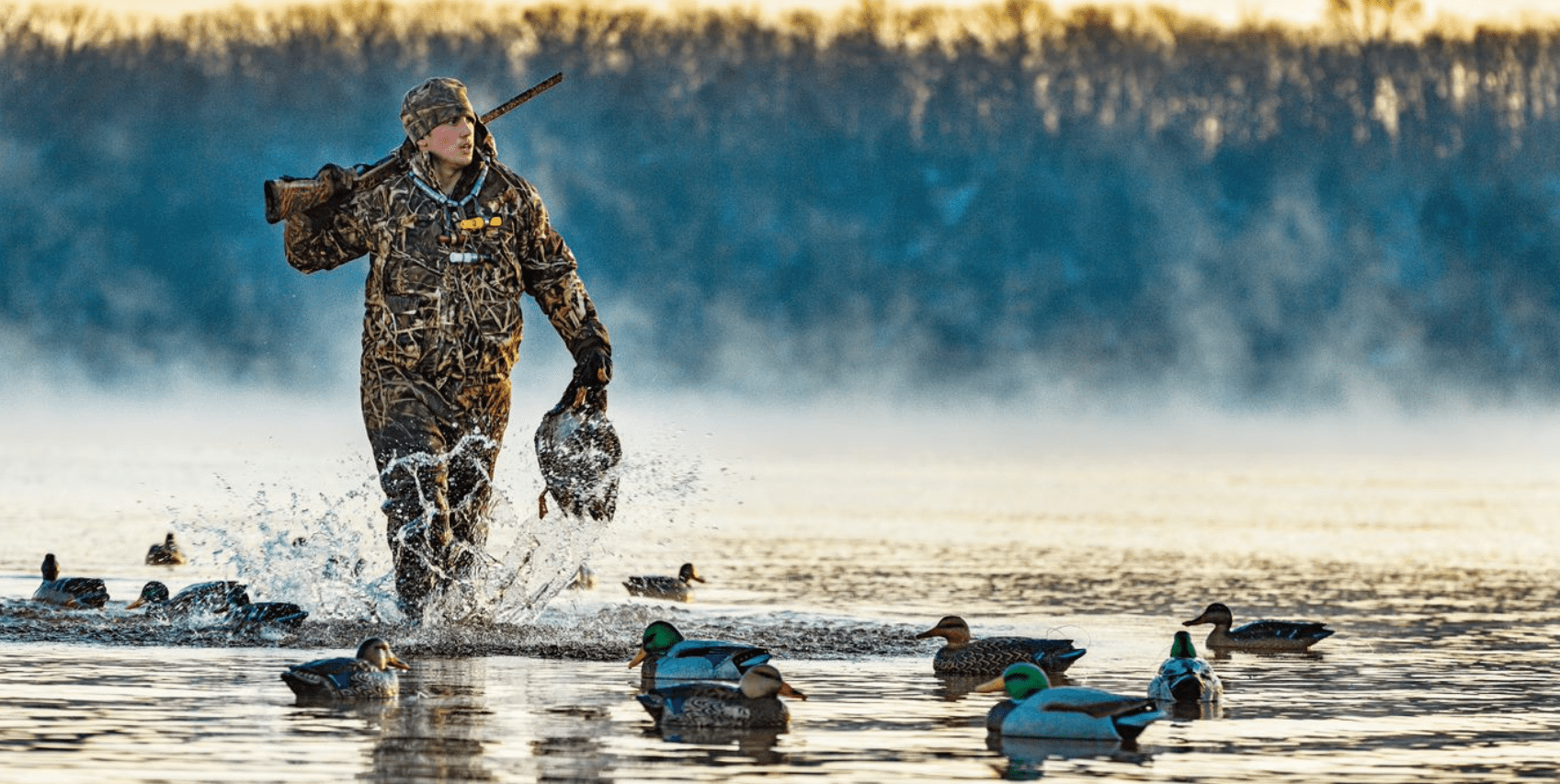
Ducks Unlimited: A Profile of the World-Changing Power of the American Sportsman
Ducks Unlimited is one of the most storied groups in the history of conservation. Founded by concerned waterfowlers during the Dust Bowl, the group artfully orchestrates its trademark approach to conservation through a combination of passion, science and the firm commitment to a singleness of purpose. DU is defined by community and its unique ability to foster the ethic of natural resource stewardship that has so proudly been felt by duck hunters across North America for more than a century.
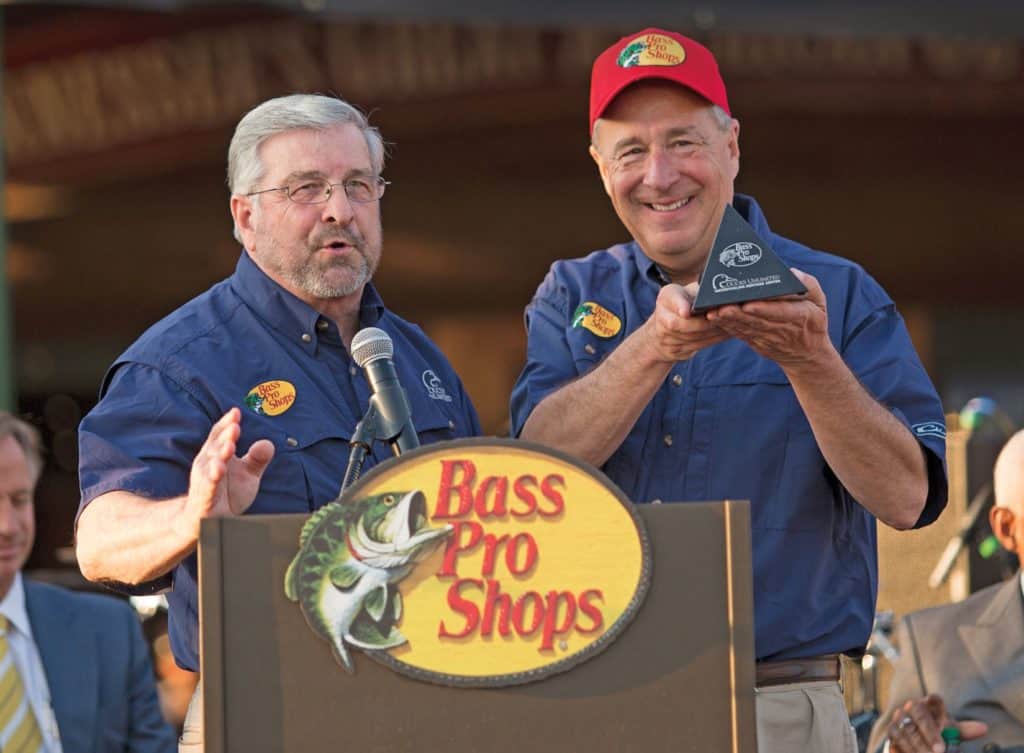
Johnny Morris, Bass Pro Shops and Cabela’s are proud to partner with sportsmen and women across North America in support of DU and its invaluable conservation work.
For 85 years Ducks Unlimited has provided a voice for waterfowlers and their forward-thinking, groundbreaking commitment to wetlands and waterfowl resources. The results of DU’s approach are remarkable. They include:
- A continent-wide approach that links the passion of duck hunters from across North America with the ability to execute on-the-ground conservation work where it matters most — the Duck Factory that is the Prairie Pothole Region of Canada and the northern great plains of the United States.
- More than 15 million acres conserved and almost 1 billion protected acres in the Canadian Boreal Forest.
- Today Ducks Unlimited boasts a membership of more than 750,000 and hosts more than 4,000 banquets each year. It’s long-term focus on conserving wetland habitat in the Prairie Pothole Region has raised the profile of one of the most powerful tools in the conservation arsenal — the conservation easement.
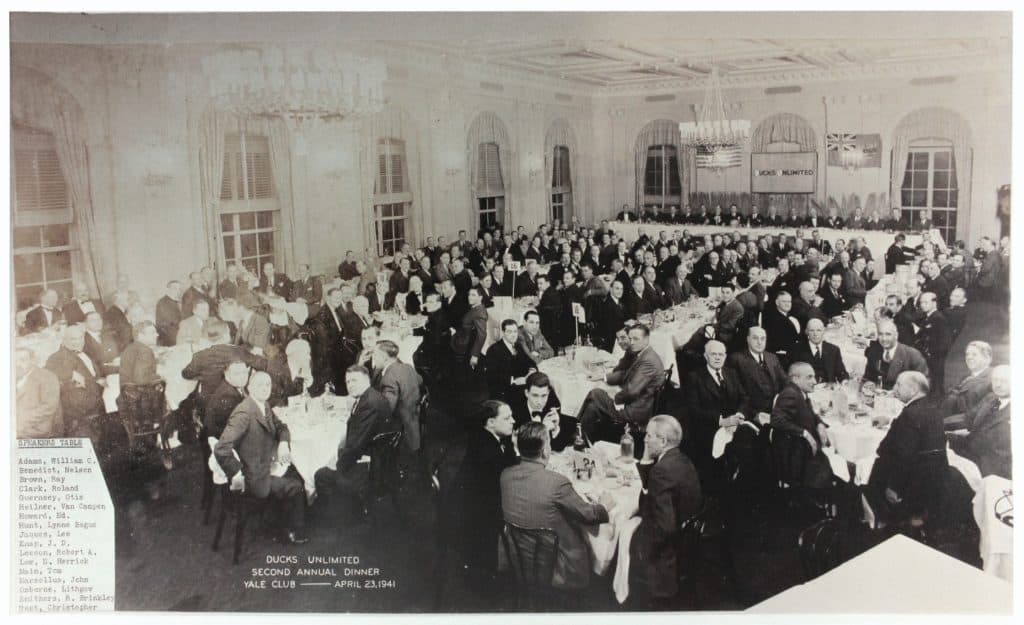
What follows is a profile of Ducks Unlimited and how the group has, is and will continue to change the world for the better. In most fundamental terms, this is the story of good, passionate people who have forever transformed how the world approaches wetland conservation. Whether or not you are a duck hunter, we all enjoy tremendous benefit from the work of Ducks Unlimited.
DU Origins: Science and the Sportsman’s Ethic
Since the group’s inception, the unique pedigree of Ducks Unlimited has been marked by reliance on science to drive action (even before this type of thing was popular).
“In the history of conservation, no group has done more for habitat on the ground to restore, sustain and take care of a resource—the wetlands and the waterfowl—than DU,” said Nick Wiley, Ducks Unlimited’s Chief Operations Officer. “It’s the ‘True North’ in the conservation arena.”
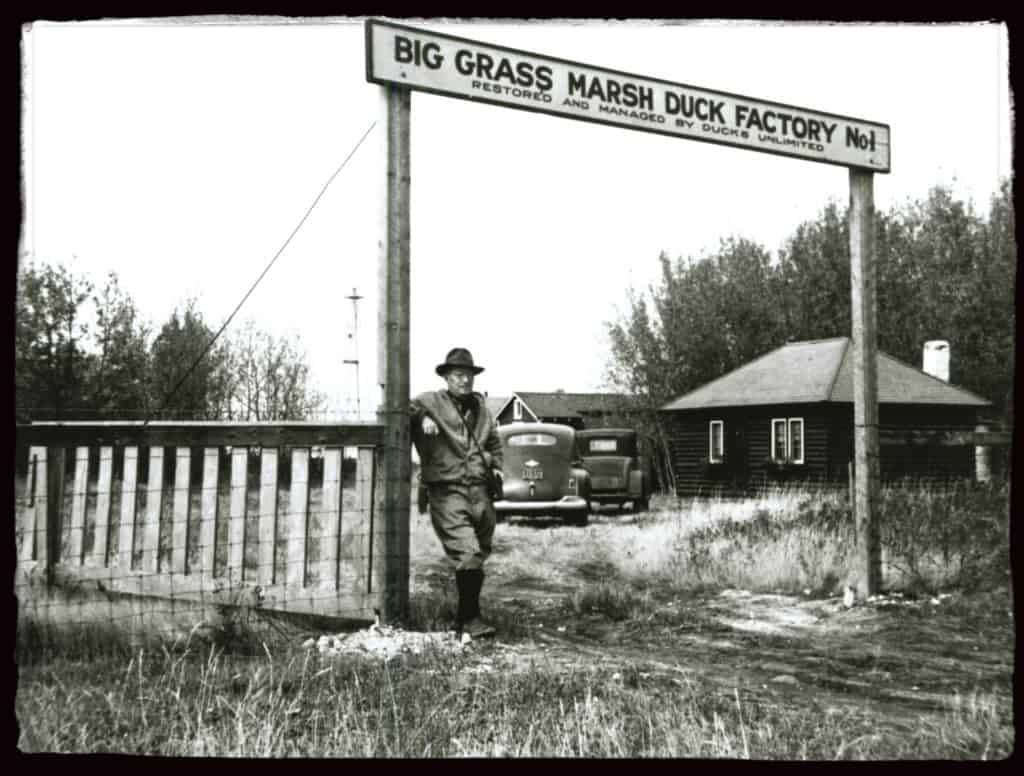
The organization’s founders, in partnership with state and provincial wildlife agencies, were the first in history to conduct aerial waterfowl and habitat surveys. While their approach to executing “the grandaddy of all wildlife surveys” was openly mocked at the time, it has since become standard practice.
This survey, the 1935 Wild Duck Census, tallied more than 14,000 air miles and took thousands of pictures on handheld cameras. The survey estimated that while there were 65 million ducks in North America, only 2.2 million were in the United States.
If hunters wanted to safeguard the future of ducks, they needed to protect one of the most important areas where they lived and bred — the Prairie Pothole Region in Canada and the US.
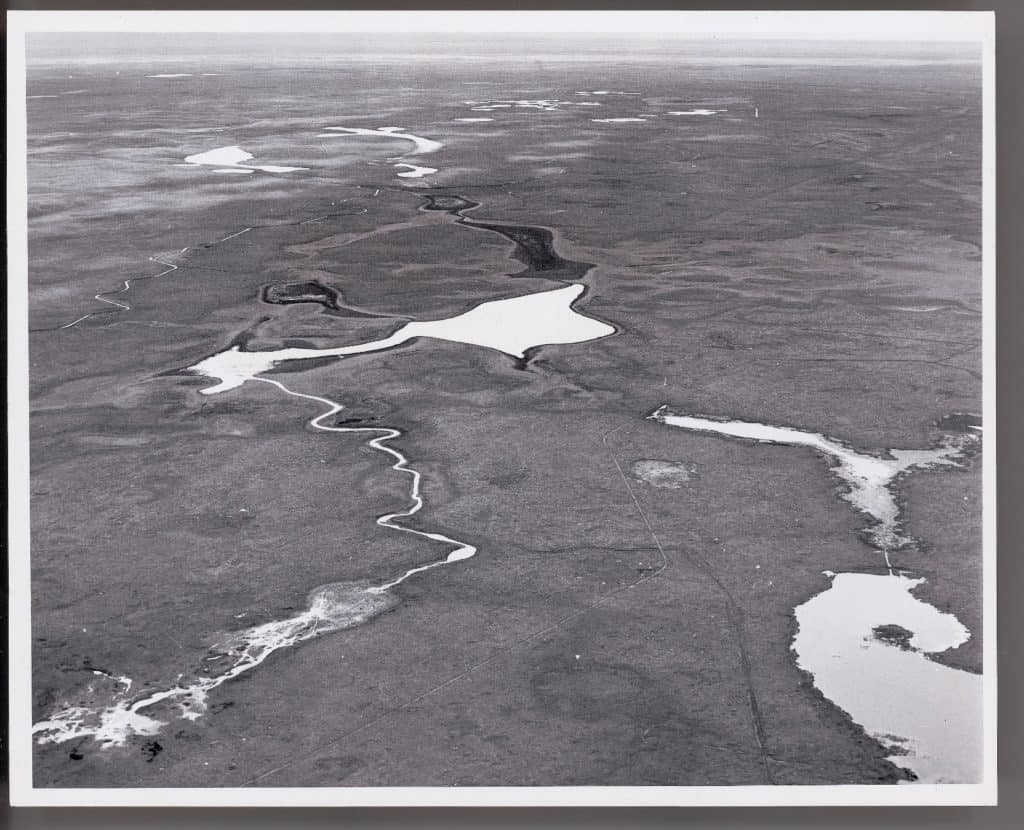
Around the same time, in 1934, concerned duck hunters in America urged the passage of a self-imposed tax to generate funds for wetland protection. The Duck Stamp, as it would come to be known, marked the first time in history that a federal agency was provided an ongoing annual budget for wetland acquisition. It has since generated more than $1.1 billion, acquired more than 6 million acres through the National Wildlife Refuge system, and helped create or expand more than 300 national wildlife refuges.
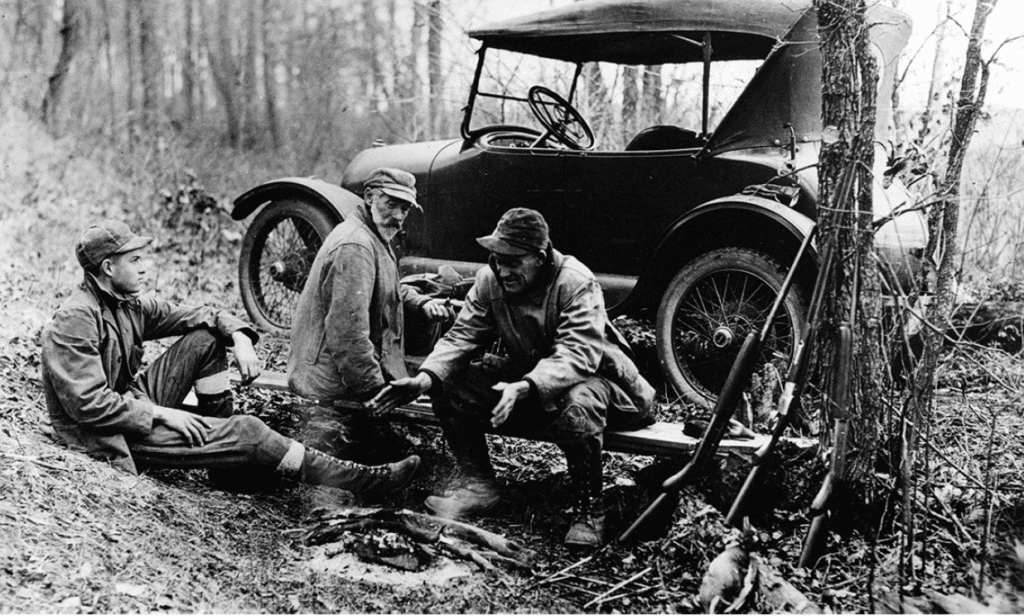
Ducks Unlimited was established in 1937. It’s founders included New York publishing magnate Joseph Knapp – the man behind the 1935 Wild Duck Census. Story has it that DU’s origins lie in conversations that took place at Knapp’s North Carolina hunting plantation, a property that is now known as Mackay Island National Wildlife Refuge.
Looking back, the Duck Stamp and the 1935 Wild Duck Census represent the emergence of a trend that has come to define the work of DU and sportsmen-led conservation generally. Hunters viewed waterfowling as more than a pastime. It was a heritage and an identifier of culture. The availability of birds and places to hunt them were too important to leave to chance. Hunters assumed ownership of the cause and brought about the change that needed to happen.
Much of DU’s evolution may be viewed in similar terms. More than 80 years later, DU chapters across North America drive conservation at local levels, areas of critical importance and within the Prairie Pothole Region. This resource stewardship is also manifest within the trust and cooperation shared between waterfowl hunters and state and federal wildlife agencies. In our divisive, partisan world, you’d be hard pressed to find another public/private partnership built on the same level of trust, backed by the same tradition of success.
Hunters fund the work of wildlife agencies. Wildlife agencies execute management and conservation. The two not only work together hand-in-hand but take confidence that their relationship has resulted in nearly a century of world-changing progress.

Interconnectedness of Sportsmen
There is something interesting and unique about waterfowl conservation. The inputs for a long-term success combine the habitat focus of other land-based species, with the thousand-mile range associated with migratory fish in the ocean. Sportsmen from Manitoba to Louisiana hunt not just the same species of duck, but in many cases the same population
“Ducks Unlimited exemplifies what Americans can accomplish when they dedicate themselves to a worthy cause and work cooperatively to a common goal.”
Dale Hall, former CEO of Ducks Unlimited
The genius of Ducks Unlimited lay in its focus on science to determine course of action and its ability to get buy in from the waterfowlers whose support was so critical to their success. In the 1930s the science and the Dust Bowl that consumed much of the United States informed the group’s longstanding commitment to invest in the Canadian prairie. Ducks Unlimited didn’t invest its first dollar on habitat in the United States until 1984.
DU’s system of chapters in communities across the United States and Canada provides a broad base of financial and popular support for conservation. The group’s scientists and policy experts then determine where and how to steer investment to generate the greatest good for ducks, wetlands and waterfowl. Ducks Unlimited, through its media outreach, banquets and volunteer structure, then translates conservation goals into a cause. It’s a full circle approach that has produced a track record that is unmatched in conservation.
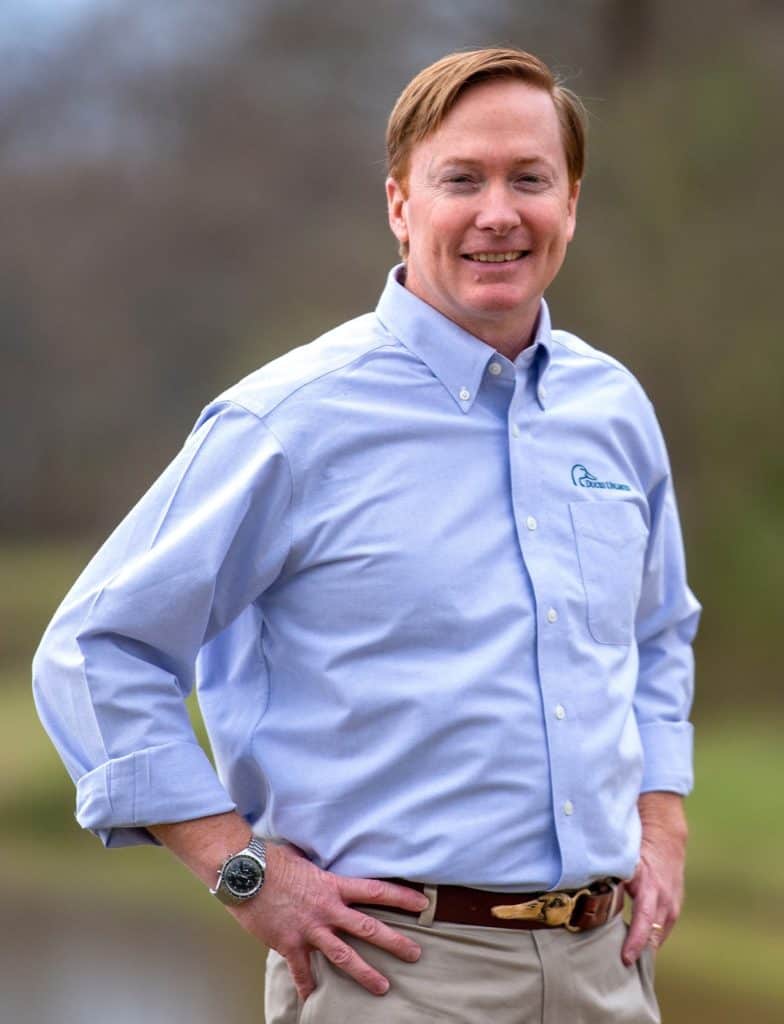
“You follow the science,” explained Adam Putnam, CEO of Ducks Unlimited. “Science says that the Prairie Potholes are the duck factory, you invest in them, and you help duck populations. Groups normally boast about investing donations back into the same community, but Ducks Unlimited rightly convinced donors to fund habitat conservation in the breeding grounds of the northern U.S. and Canada. DU found ways to connect the dots through the banquet system that connects people with the cause and provides the ability for people to learn about it and support it.”
“The pieces came together. Our visionary founders first recognized a serious resource crisis and framed a meaningful cause. Then they galvanized a coalition of partners around this cause,” said Nick Wiley. “This partnership developed, funded and applied the science and formed a comprehensive plan. Then they went to work delivering the right conservation projects on the ground in the right places. In full alignment with implementing the North American Waterfowl Management Plan, Ducks Unlimited expanded this approach in the 1980s to begin delivering waterfowl habitat projects in the U.S.”

One of the trademarks of this approach lies in its ability to create community and foster ownership of the cause. Waterfowlers led the way in calling for the Duck Stamp and the program funded the system of National Wildlife Refuges across the country. DU’s inclusive, sportsmen-powered, science-backed approach carries this same mantle today.
“The essence of DU is still that of the sportsman’s ethic. Hunters and Anglers were the original stewards of landscape,” Putnam explains. “They continue to be the most passionate and generous about doing what needs to be done for waterfowl and for wetlands.”
“Our people do it all. They invest, donate, and volunteer. They readily buy licenses and readily pay excise taxes. Everywhere you look DU supporters are investing in conservation,” says Putnam of DU’s core hunter membership. “Passion drives community. I joined DU when I was 16. The people who ran the banquet in my community were people I looked up to and respected. It is still the same today.”
Johnny Morris, Bass Pro Shops, Hunters and DU: A Force for Conservation
The success of Ducks Unlimited’s wetland habitat conservation stands testament to the power of sportsmen and women to make conservation happen. The passion of hunters and anglers, in fact, is the driving force behind the North American Model of Conservation—widely recognized as history’s most successful system of laws and policies to safeguard and conserve wildlife and habitat. Passion, partnership and coordinated effort are central ingredients to this approach.
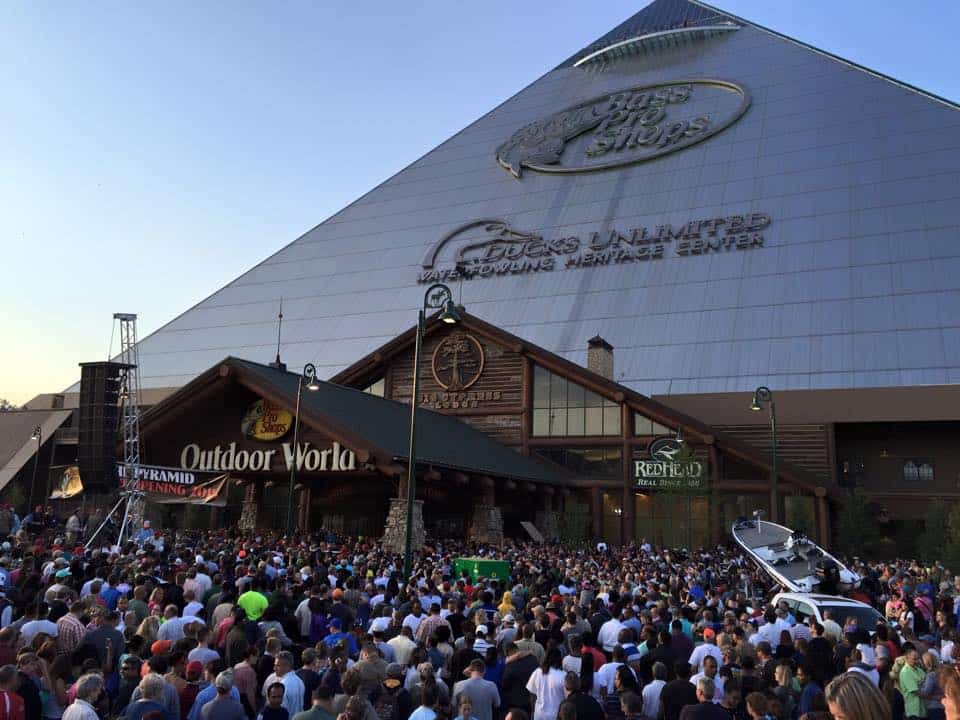
Johnny Morris, Bass Pro Shops and Cabela’s are honored to stand united with hunters across North America in support of Ducks Unlimited. Bass Pro Shops is DU’s largest lifetime industry donor. Johnny Morris has been recognized with DU’s Lifetime Achievement Award. The best physical manifestation of the partnership, however, is perhaps the DU Waterfowling Heritage Center located in the Bass Pro Shops in the Pyramid in Memphis, Tennessee.
“I am not the first person to say this, but I believe Johnny Morris is a modern version of Theodore Roosevelt—as a giant who has transformed conservation in his day,” said Adam Putnam. “Johnny Morris’ generosity to DU has resulted in thousands of acres in the Prairie Pothole Region, in Missouri, in Louisiana and up and down the flyway being conserved. Johnny’s ingrained culture of partnership, from the Outdoor Fund to the logos on the wall at Bass Pro, to his public remarks, to his engagement, and the Pyramid in Memphis. He creates a constant drum beat of the reminder to give back and the importance of working together.”
“The impact is much bigger than Johnny Morris’ and Bass Pro Shops’ financial generosity. The Bass Pro Shops culture is committed that every customer who comes into the store leaves more educated about his or her role in conservation, not just as a consumer.”
Join Us: Standing with DU
Johnny Morris, Bass Pro Shops and Cabela’s invite you to stand with us in joining Ducks Unlimited. Membership is not just an affirmation of sporting culture and waterfowling heritage, but an investment in one of the most distinguished track records in the history of conservation. Not only has Ducks Unlimited transformed the conservation landscape — conserving more than 15 million acres of wetland habitat across North America — it continues to blaze a trail into the future.
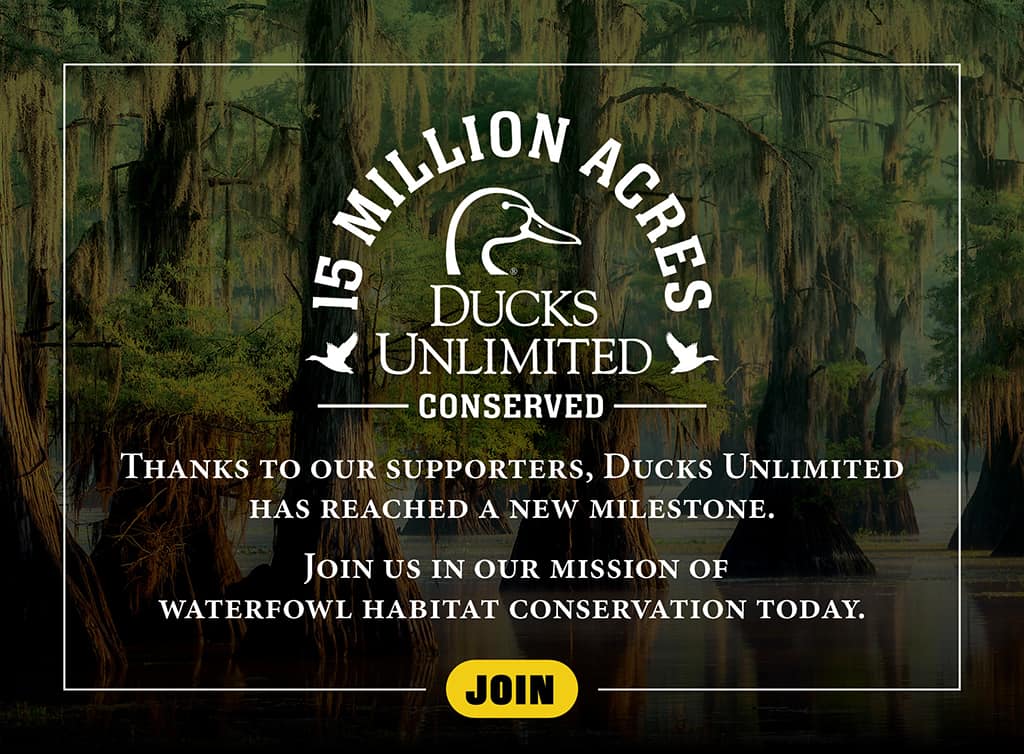
Adam Putnam explains: “Our value proposition in simple math. The dollar raffle ticket bought at a dinner becomes five or six dollars of habitat work on the ground. Every member dollar is matched with a Duck Stamp dollar, an Outdoor Fund dollar, a Fish and Wildlife Service dollar, an excise tax dollar. Before you know it, that turns into a billion acres of habitat, with the Prairie Potholes as the focus. Your support will go directly to conservation and enrich waterfowling heritage across North America.”

